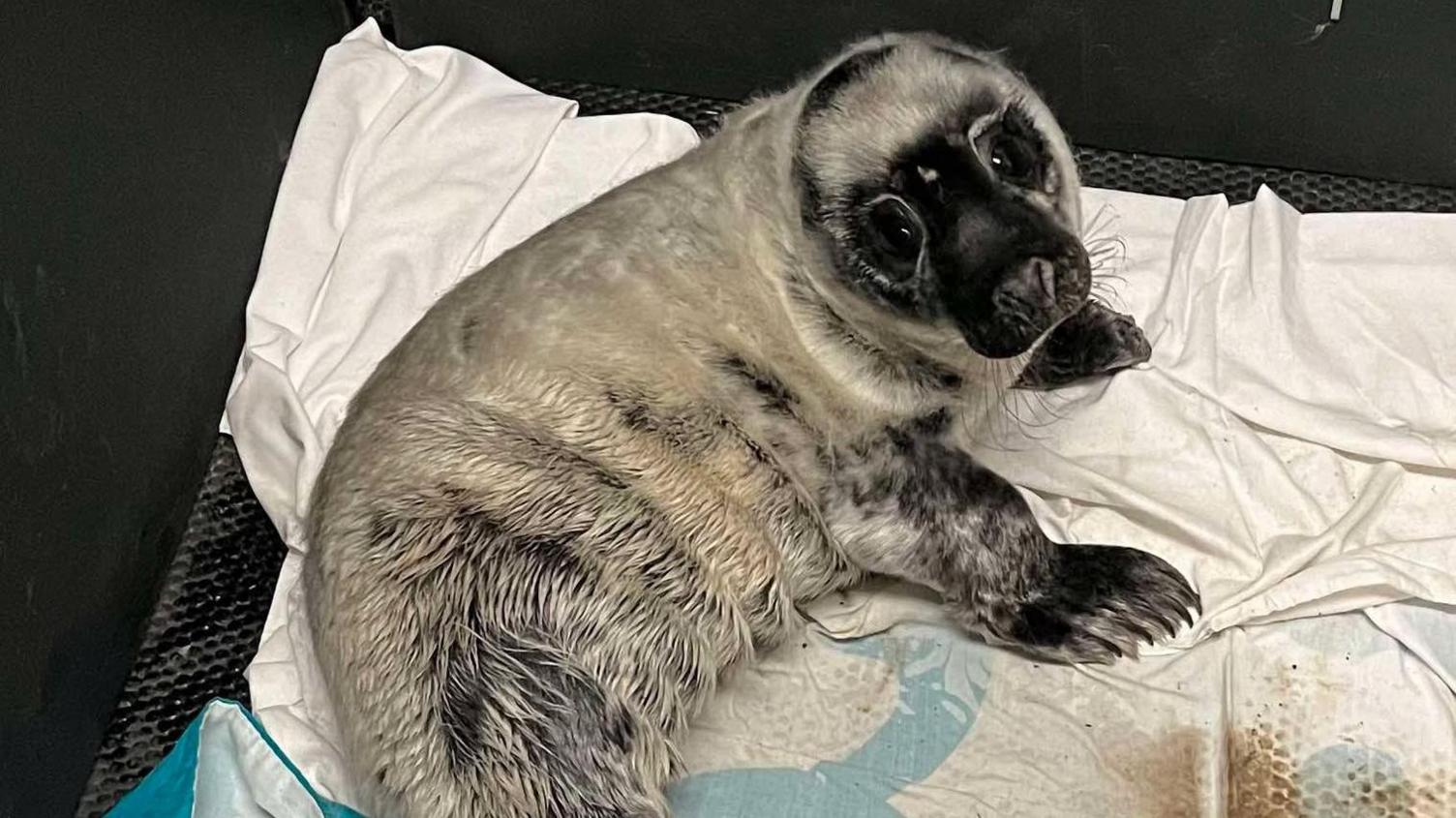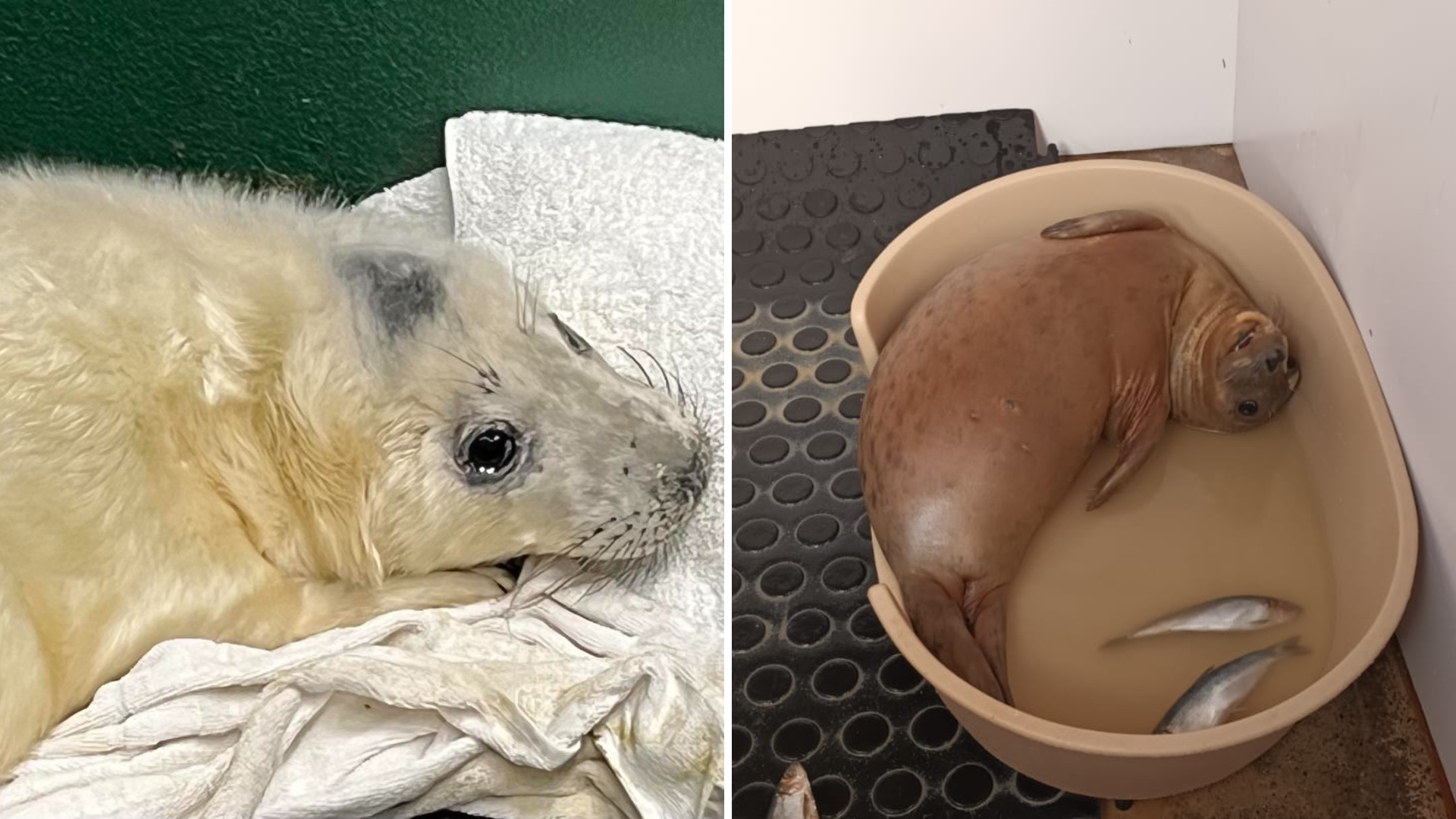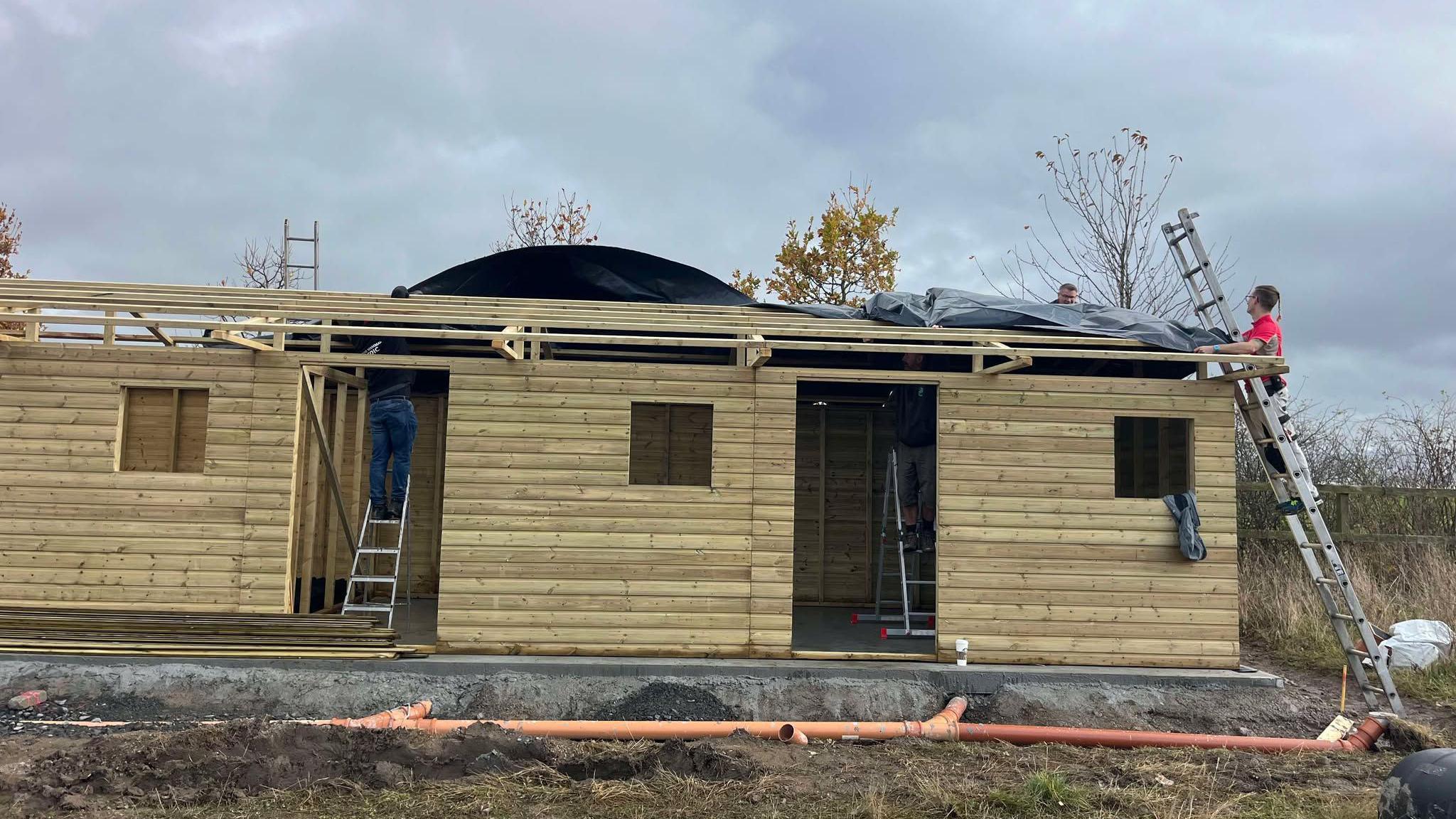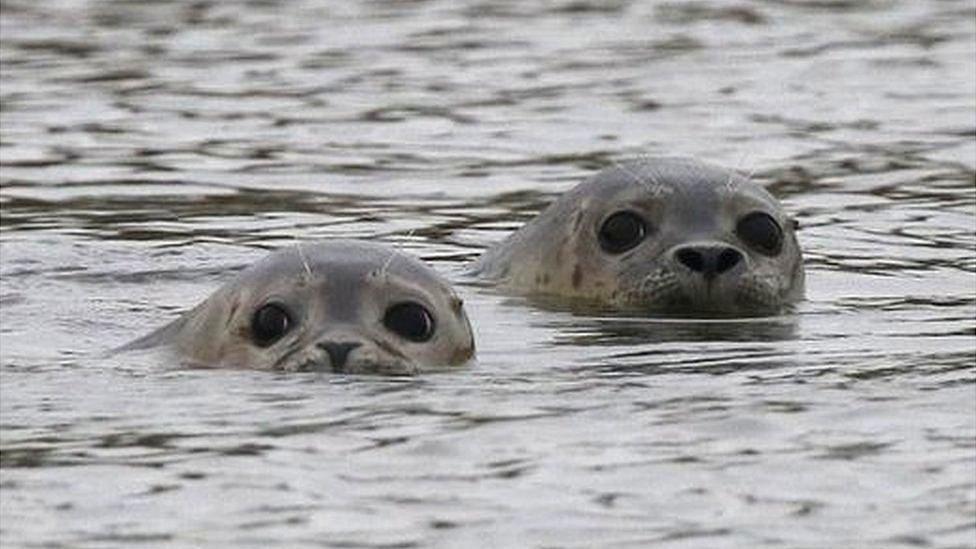New seal triage centre will 'save a lot of lives'

The new unit will have space for up to six seals
- Published
Work to establish a new seal triage centre that organisers say will "save a lot of lives" is nearing completion.
British Divers Marine Life Rescue (BDMLR) is building a unit in Morpeth, Northumberland, to tackle the growing numbers of injured seals in the north-east of England.
Debbie Harrison, Northumberland coordinator for BDMLR, said the area has needed the facility for "a long time" due to impacts of climate change on seal pups.
It is hoped the North East Seal Triage unit (NEST) will open within the next two weeks while the grey seal birthing season is still at its height.
"Climate change is playing a large factor in what we're doing," said Ms Harrison.
More frequent storms and higher tides are putting grey seals at risk and washing pups away from their mums too early.
"They can't survive on their own," she added.

Sam was released in November after being rescued in Northumberland in 2023
Ms Harrison said the is a "lack of short-term care options available" for a growing number of casualties.
One of the reasons she decided to take the project forward was because last year she rescued a whitecoat pup called Sam "who wouldn't survive on her own", but there were no rehabilitation spaces available.
BDMLR's vets Robson and Prescott offered space in their facility for the seal until space become available.
Sam was released back into the wild in Ayrshire in November.

The new unit is being built by volunteers next to Robson and Prescott vets
Ivor Clark, who runs the group Newbiggin Dolphin Watch and is helping fundraise for the new centre, said the seal population off the Northumberland coast has seen an "explosion in growth" over the past 10 years.
"We’ve been crying out for something like this for years," he said.
"We reached the point where healthy animals were otherwise being put to sleep because there was nowhere to put them.
"It was getting desperate."
The new site will house up to six seals at a time while they are assessed for treatment.
Some will be released quickly, however more serious cases will be stabilised before being moved to a rehabilitation centre.
"It’s going to make a big difference," said Ms Harrison.
Follow BBC North East on X, external, Facebook, external, Nextdoor and Instagram, external. Send your story ideas to northeastandcumbria@bbc.co.uk.
More stories from BBC North East and Cumbria
- Published30 October 2021
